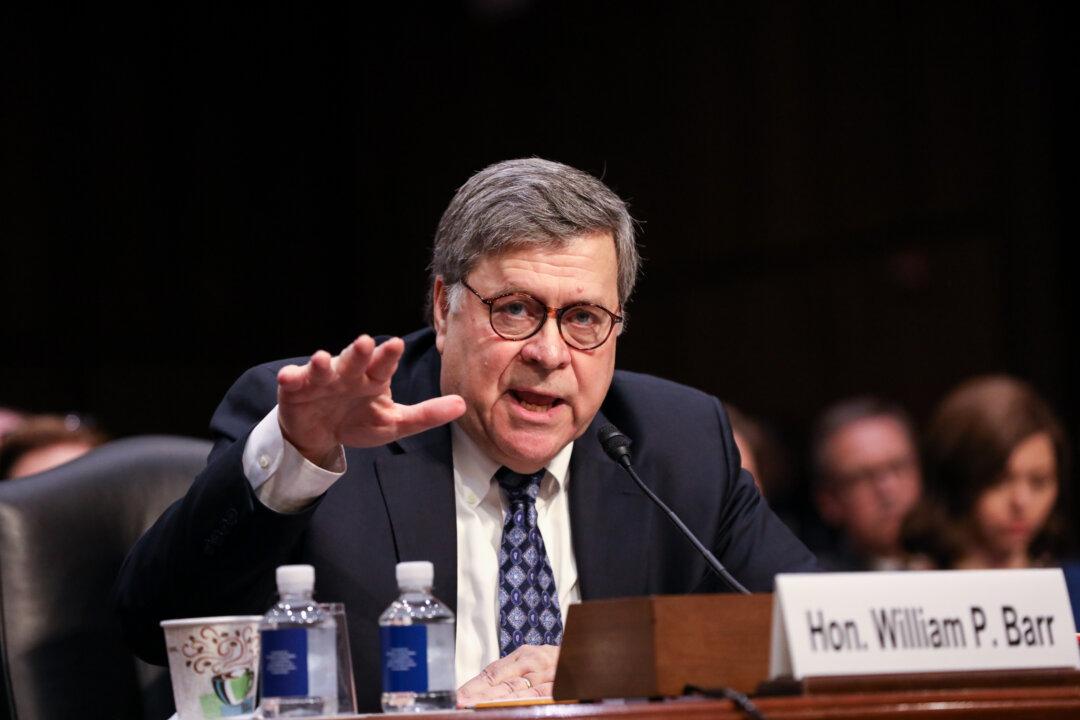Attorney General William Barr said that special counsel Robert Mueller was wrong when Mueller said he could not recommend charging President Donald Trump with a crime if enough evidence existed.
Mueller, speaking for the first time since the submission of his report to Barr, claimed on May 29 that his team’s avoidance of a traditional prosecutorial decision—a recommendation to press charges or not—was due to Department of Justice policy.





